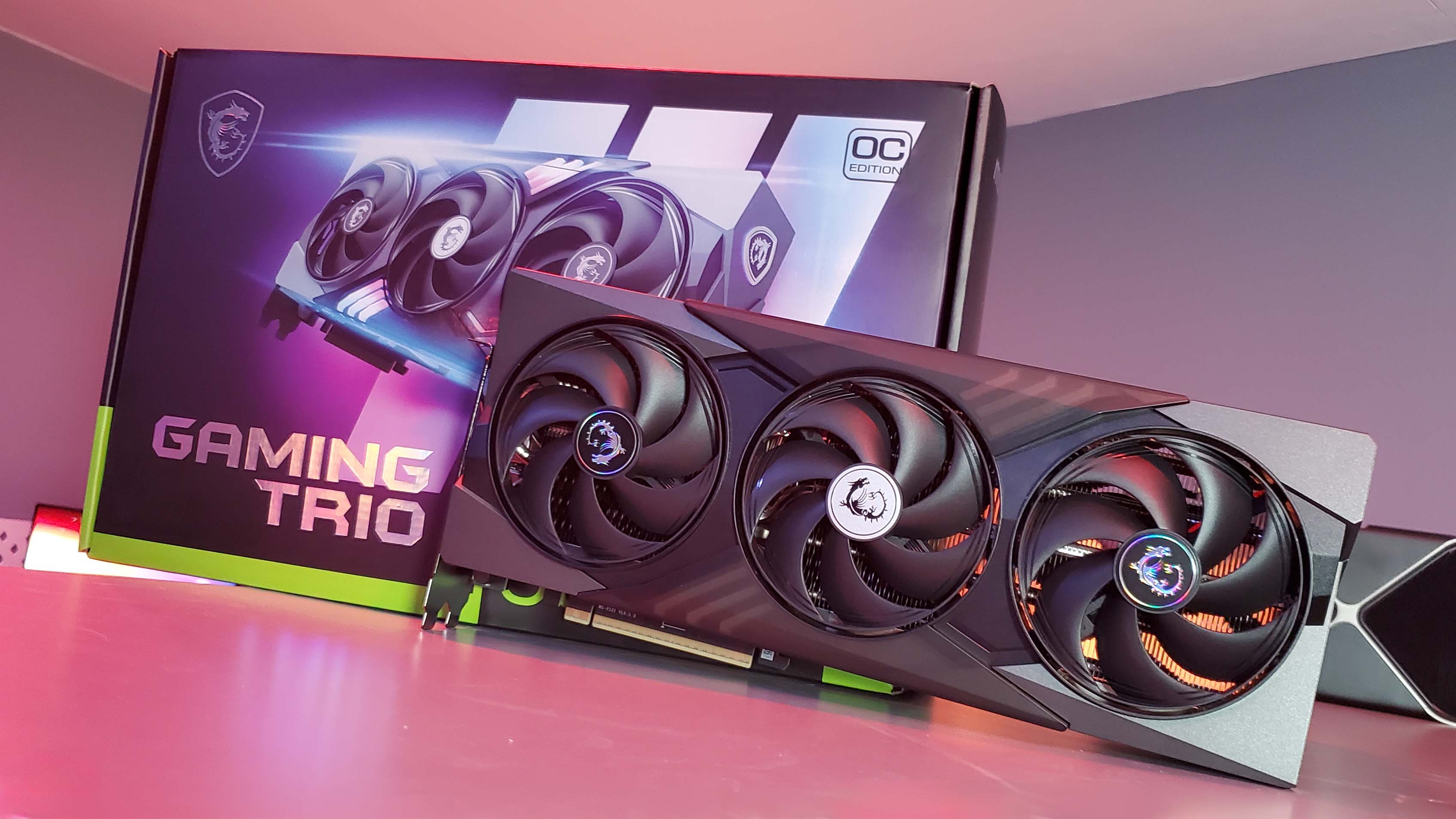Our Verdict
There's no excuse beyond rampant price gouging for this card to be priced so far in excess of the original Nvidia MSRP for the RTX 5070 Ti. It may be slightly quieter, and a couple degrees cooler, but it has no performance or overclocking edge over a reference version.
For
- Has all the RTX Blackwell good stuff
- Same great overclocking card
- Silent
Against
- Disgustingly overpriced
- No performance boost over MSRP card
PC Gamer's got your back
Is it because there's no Founders Edition of the RTX 5070 Ti? Is that why seemingly every manufacturer on the gods' green earth has decided to give the middle finger to PC gamers and stick another $200+ on top of the original Nvidia MSRP for the card? I'll level with you, this is something I simply am not going to be able to get past for this review of the MSI RTX 5070 Ti Gaming Trio OC Plus: its price.
With Nvidia promising $749 for the RTX 5070 Ti at CES this year we were all pretty pleased that it was going to represent a price cut over the previous RTX 4070 Ti/Super cards, and impressed that it was set to utilise the same second-tier Blackwell GeForce GPU as the RTX 5080.
Personally, I was even more excited about the card after I saw just how much overclocking headroom there was in that GPU. But, though that has been born out in my initial RTX 5070 Ti review—with 3.2 GHz+ being easily achievable, delivering almost RTX 5080 level frame rates—the warning flags had already started to be raised up the pole well before release.
I had hoped that early listings for the cards had either been placeholder prices or simple errors, and it initially seemed that way from my conversations about the card with Nvidia reps. Though they couldn't comment on specific examples I was told most listings were just placeholders and would be updated just prior to launch.
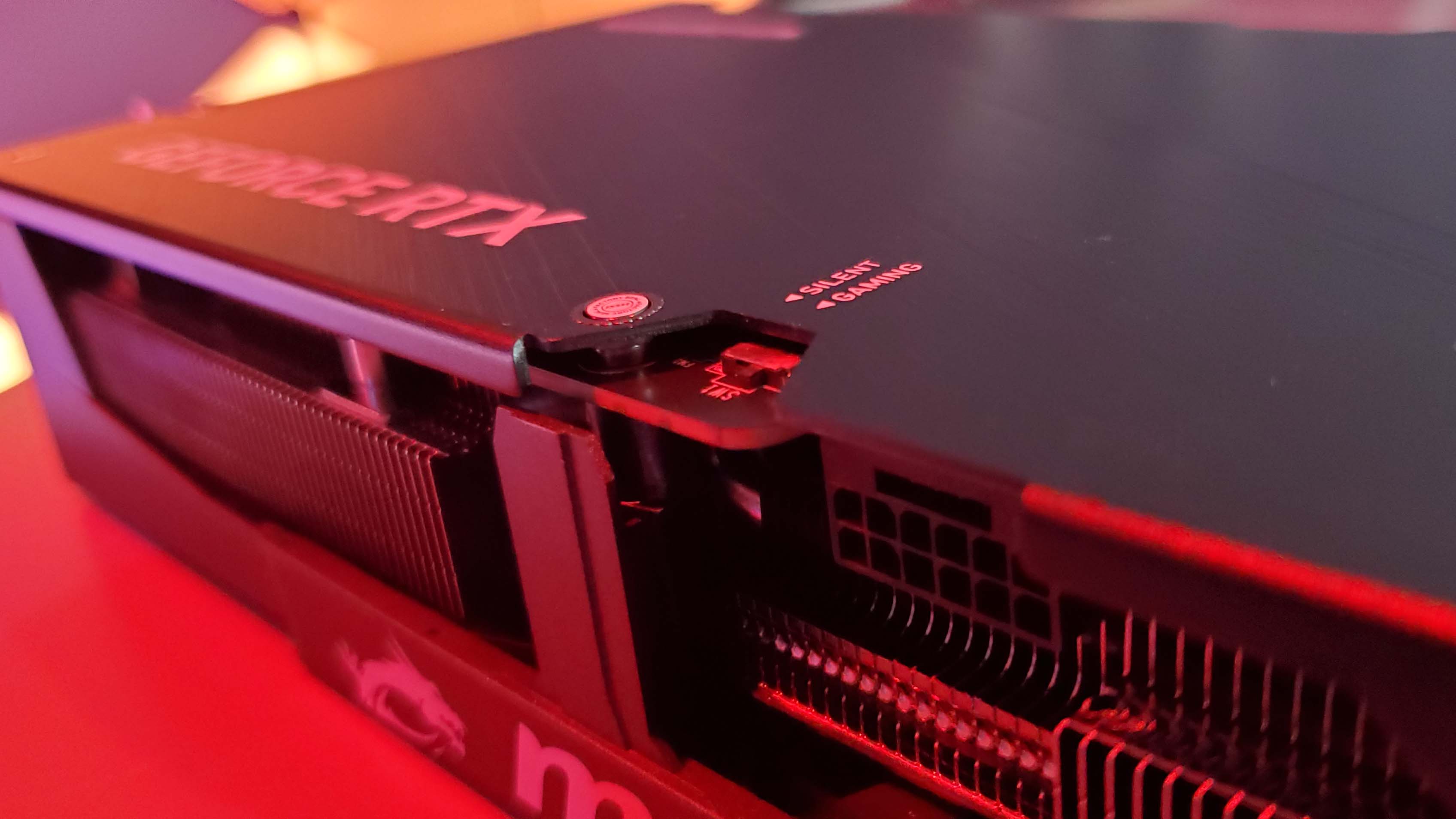
GPU: GB203
CUDA cores: 8960
Boost clock: 2572 MHz
Memory: 16 GB GDDR7
Memory speed: 28 Gbps
Memory bus: 256-bit
TGP: 300 W
Price: $970 | £940
Then I heard from retailers the exact prices they were actually going to be charging, and finally both Asus and MSI told me how much they were going to be charging for their various non-MSRP cards.
And it all stinks. Bad. Like, real sorry-for-my-guts-but-I've-been-subsisting-on-Taco-Bell-solidly-for-nine-weeks-straight-type bad.
This MSI RTX 5070 Ti Gaming Trio OC Plus card is $970. At best, with no guarantee retailers aren't going to decide to go above MSI's own MSRP for the card. That's at least $221 more than the MSRP Nvidia set out when it was first announced, and just shy of the MSRP of the RTX 5080. And there's no reason I can see that justifies the extra price over something like the MSI RTX 5070 Ti Ventus 3X that I reviewed and was promised was an MSRP-level version.
No reason other than rampant price gouging and offensive late-stage capitalism at its worst. It's not just MSI at it, either, so we can't just blame it for taking advantage of the expected paucity of stock by hiking the prices up so offensively high. The AIBs know, as I do, that it doesn't matter what I say here about this pricing, that however many people are put off by the brutal costs of the card, there will be enough folk willing to suck it up to cover the initial launch day stock—either because they're confident they can sell it on for even more or because they will pay practically anything for a new RTX 50-series card.
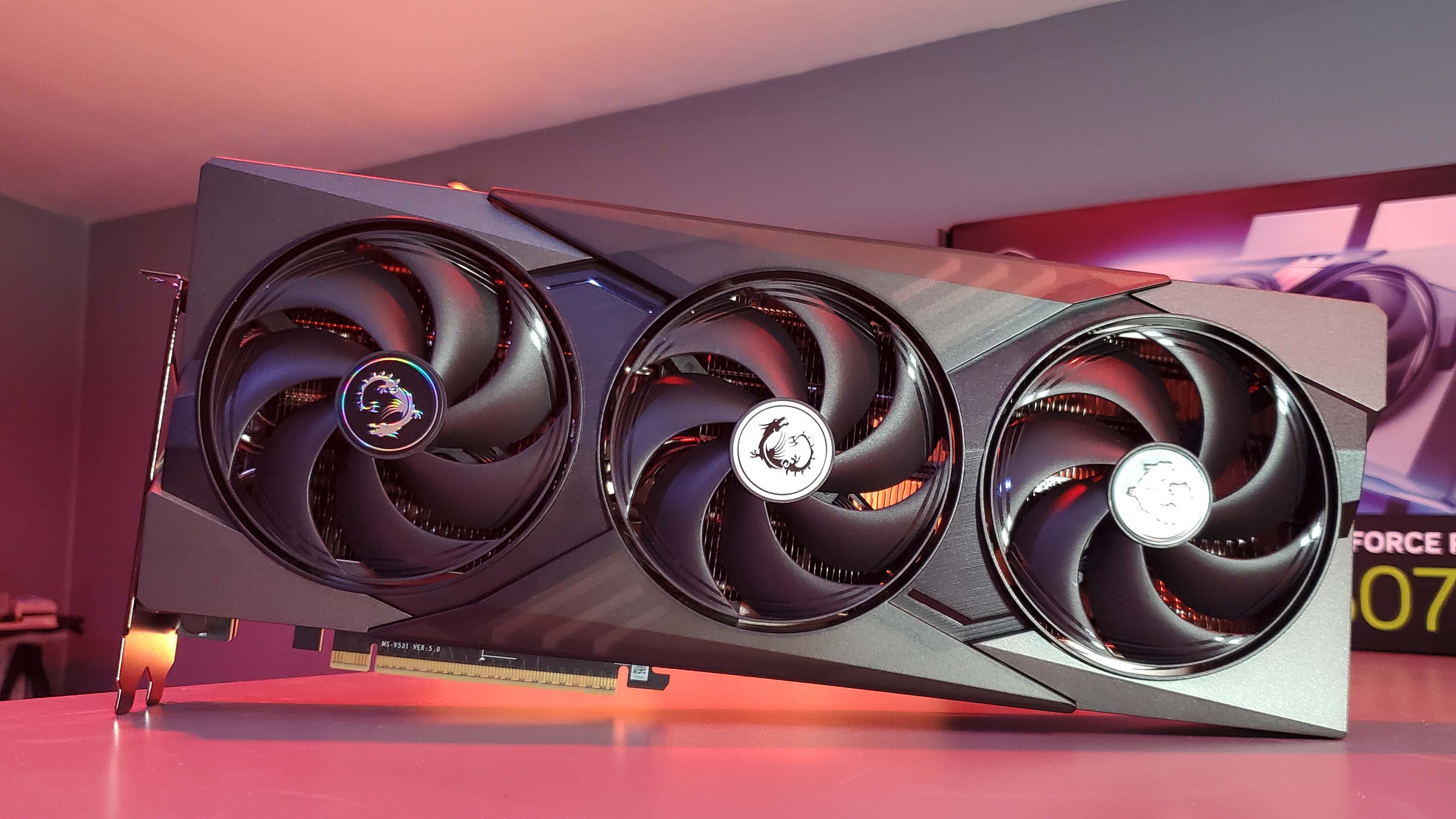
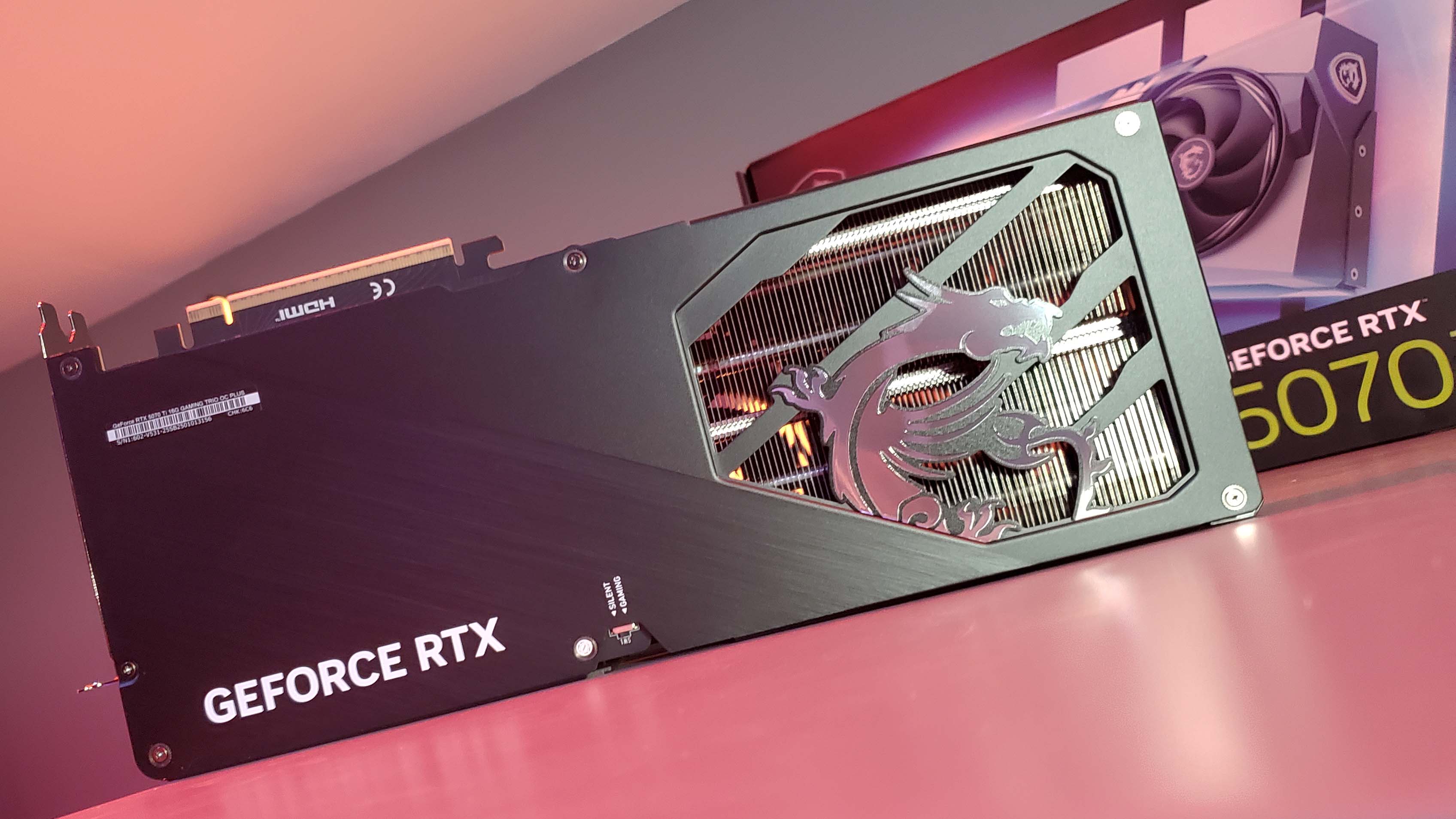

So, what does that near $1,000 get you, aside from that rising acrid taste of bile at the back of your throat? Well, you get a GPU that's clocked… wait for it… at 2,572 MHz. Yes, a full 90 MHz higher than the RTX 5070 Ti Ventus 3X. Though, as we know, those Boost clock numbers are relatively meaningless in the face of dynamic clock speeds, especially with how Blackwell is able to tune performance up and down so damned quickly now.
Which means we ought to look at what the clock speeds look like when the relative cards are being stressed in-game. And it turns out that, in my testing, running our Metro Exodus Enhanced wee stress test, there is just a 7 MHz delta between them. The supposedly MSRP card hits 2,692 MHz and the Gaming Trio hits 2,699 MHz.
But what of overclocking? Surely, that's where the more expensive card, with its beefier cooling array and fancy RGB can make a name for itself? And yeah, it is a great overclocking GPU, still. There proves to be as much gaming headroom inside this GB203 chip as in the Ventus 3X; it wasn't a fluke or a win in the silicon lottery. But that's just the thing: it's the same.
I couldn't push the card any further than the MSRP version. I was wondering if, with the Power Limit now unlocked for this card—setting the GPU at +110%—I'd actually be able to run at a stable +475 MHz offset, something the Ventus 3X could almost, but not quite, do.
No dice. Anything above the same +450 MHz mark and the overclock eventually fails and the entire system falls over when stressed over a relatively short period of time.
So, no more overclocking prowess, and there's not even a single percentage point difference between the two cards when it comes to actual gaming performance, either. What it boils down to—and what a faintly apt choice of word that is—is the cooling. The more expensive RTX 5070 Ti Gaming Trio OC Plus is able to run its GPU, in-game, with an average temperature three whole degrees centigrade lower than the Ventus 3X. And its peak temperature is some four degrees lower.
That's $55.25 per degree, people. That's what your Gaming Trio premium is going to buy you.
Okay, that's not entirely fair. There is a Silent switch on the card, offering up dual BIOS functionality to run the card more quietly. Strangely, it's running at the same clock speed, just with quieter operation, and my testing showed it actually running cooler by another couple degrees, with the same gaming performance. That's a win there, right? Though the differences are so minimal that's likely just down to natural variance in testing. Still, it is quieter. A bit.
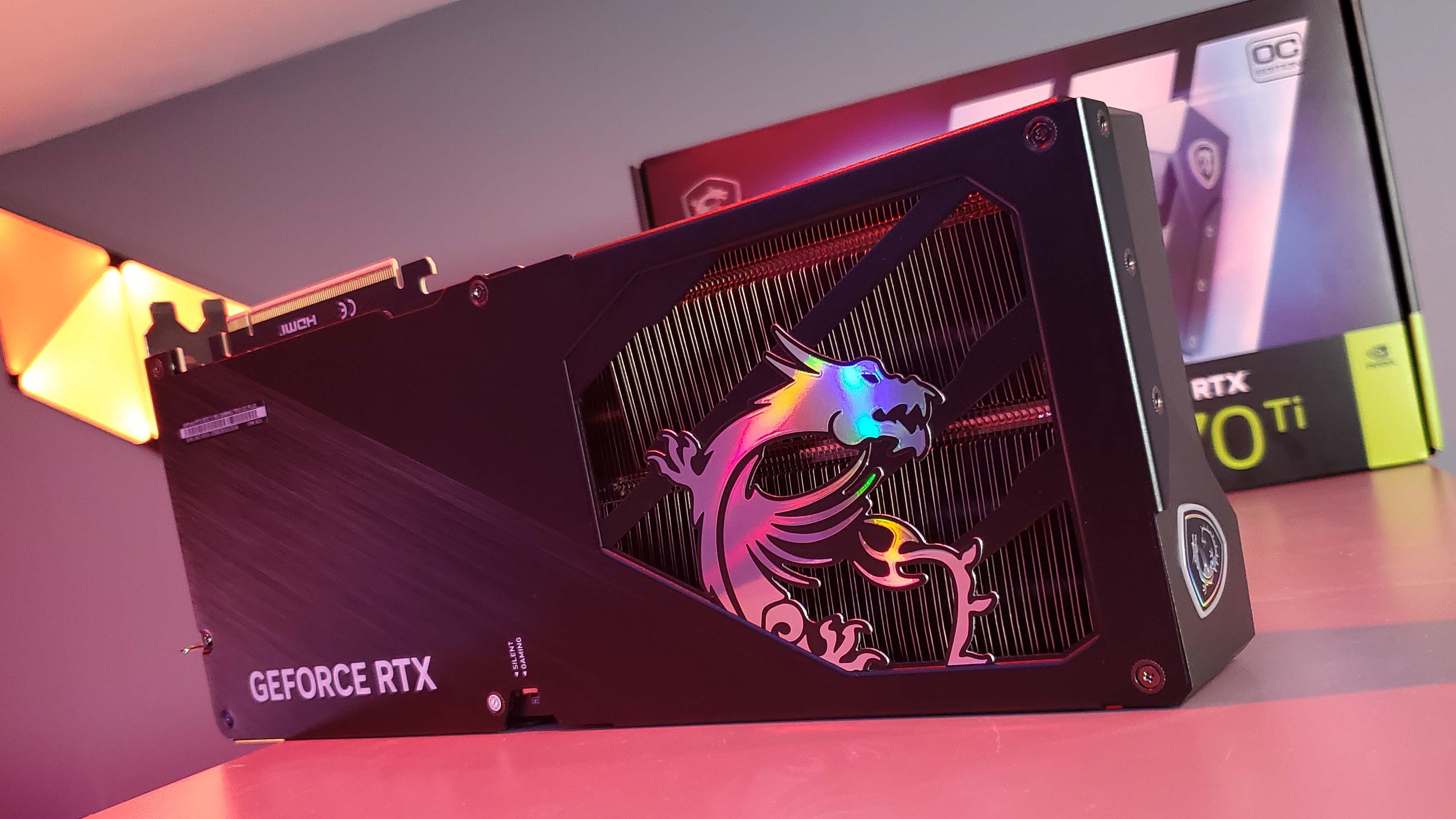
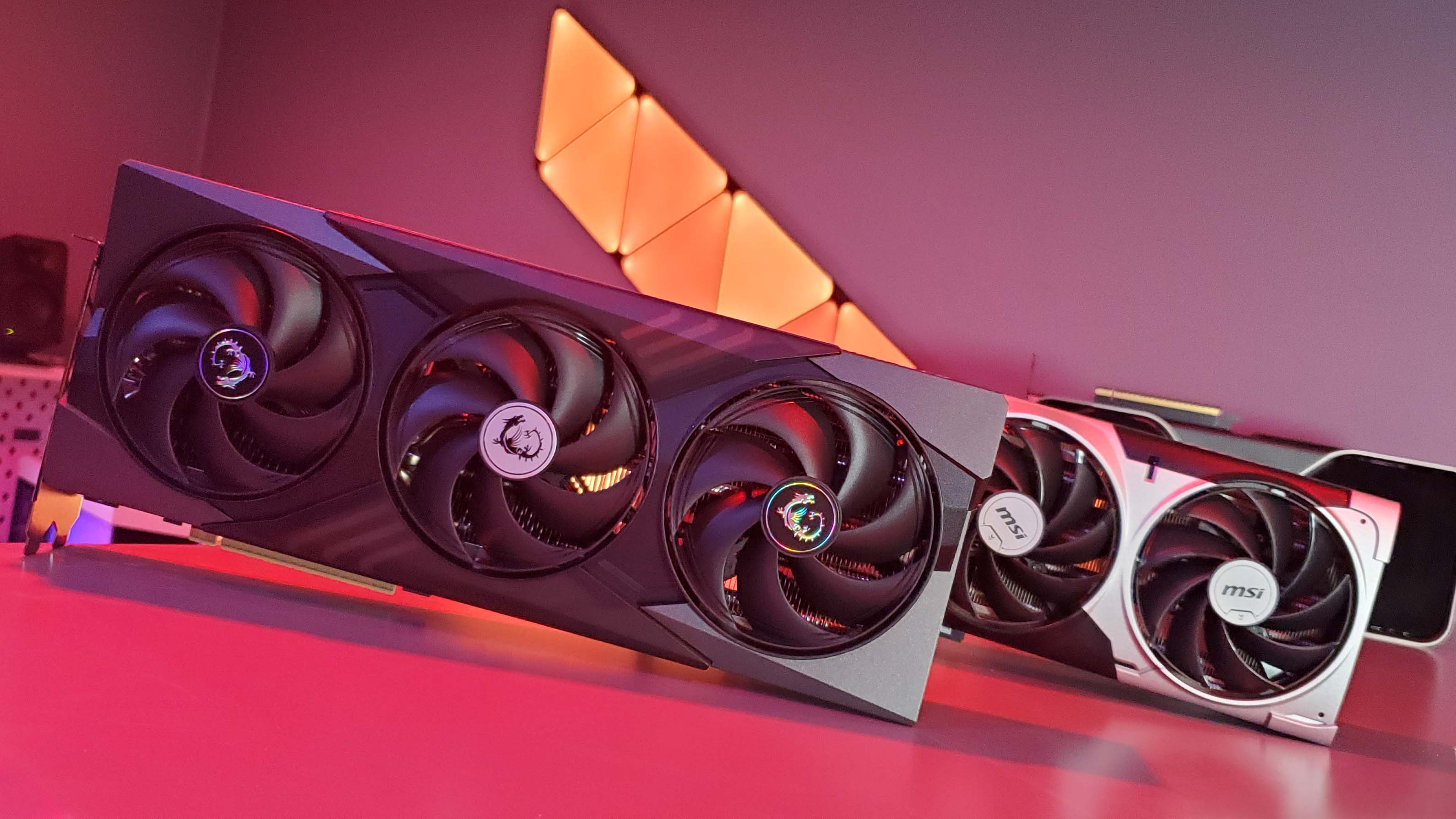
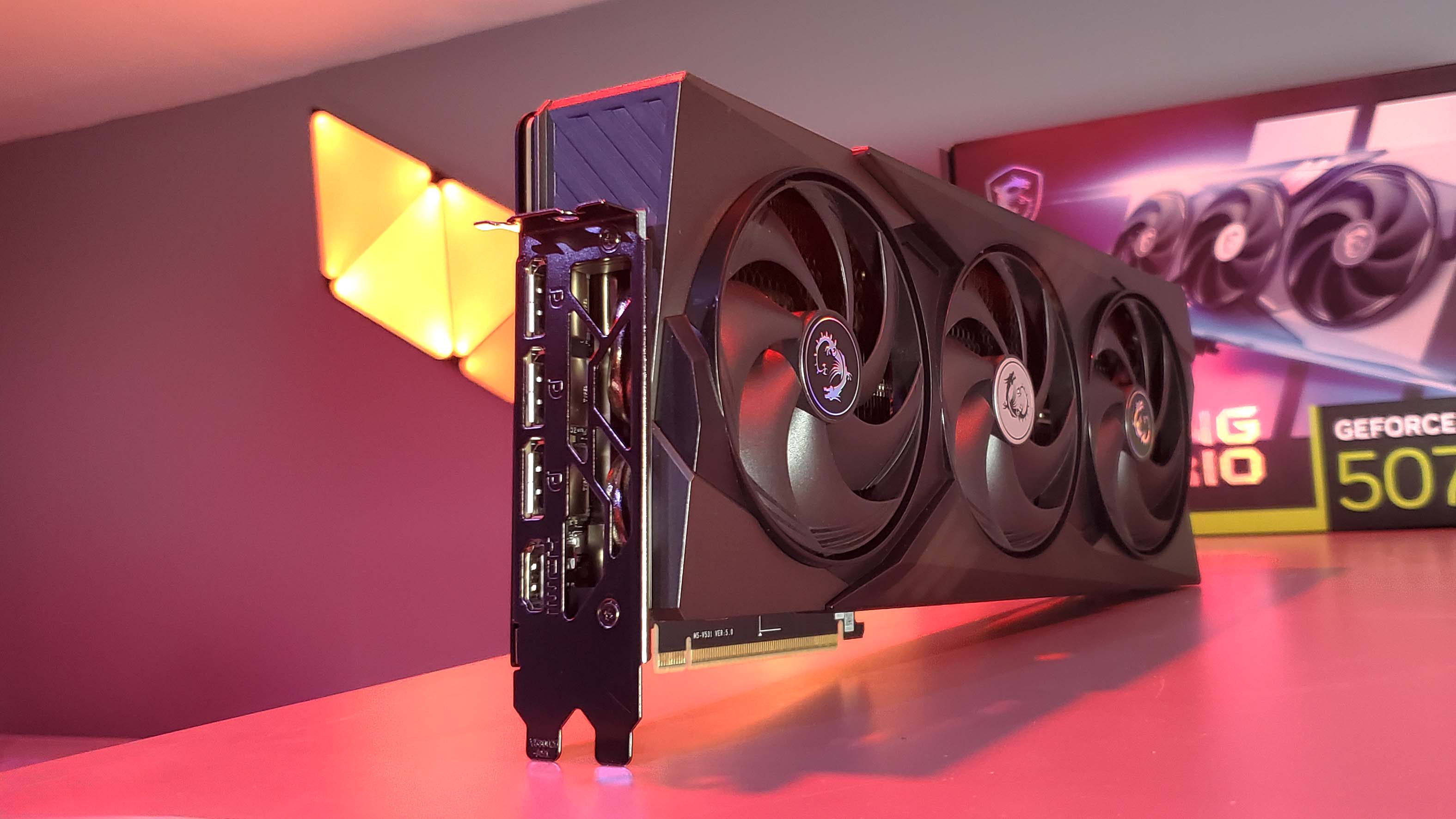
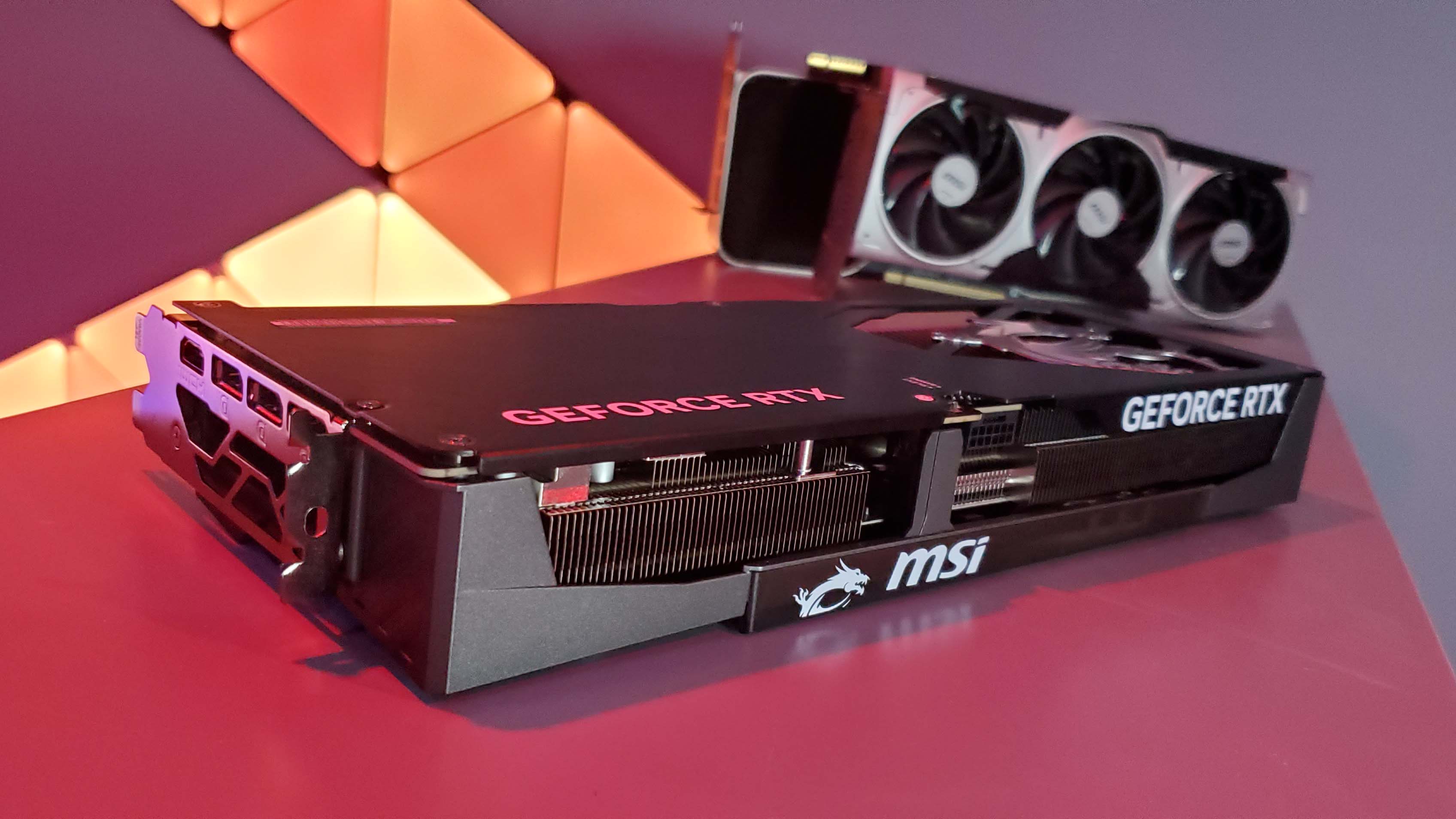
✅ You want to pay RTX 5080 money for a slightly slower card: I get it, with scarcity all the GPU prices go up, and manufacturers want to cash in as much as they can so that it's not just the retailers benefitting from squeezing PC gamers. I just don't have to like it.
❌ You can get by with your current PC setup as it is for just a little while longer: Stock levels will normalise, and I'm sure prices will, too. Maybe not down to the actual MSRPs for a while, but if you don't have to buy now, don't let the temptation of the shiny new thing cloud your judgement.
In all honesty, I'd probably not be super-excited about this version of the RTX 5070 Ti if it were only $50 more than the reference price. After all, there's no really tangible gaming benefit over picking an MSRP RTX 5070 Ti if you can find one. But still, I'd get it; the Gaming Trio OC Plus is a premium card and, yeah, it's cooler and quieter. And if it was just that sort of price premium I wouldn't feel too bad about paying the extra if it was the only option available.
But this $220+ price difference is literally banking on there being no other option available and counting on there being enough people to say 'screw it' and just pay the money. It's horrifically cynical and, while people are certain to clap back, 'but it's just supply and demand—simple economics—you dolt', I will continue to say to anyone who will listen: do not fall for it, do not excuse it, and do not deign to pay such a ridiculous price for a third-tier GPU.
There's no excuse beyond rampant price gouging for this card to be priced so far in excess of the original Nvidia MSRP for the RTX 5070 Ti. It may be slightly quieter, and a couple degrees cooler, but it has no performance or overclocking edge over a reference version.

Dave has been gaming since the days of Zaxxon and Lady Bug on the Colecovision, and code books for the Commodore Vic 20 (Death Race 2000!). He built his first gaming PC at the tender age of 16, and finally finished bug-fixing the Cyrix-based system around a year later. When he dropped it out of the window. He first started writing for Official PlayStation Magazine and Xbox World many decades ago, then moved onto PC Format full-time, then PC Gamer, TechRadar, and T3 among others. Now he's back, writing about the nightmarish graphics card market, CPUs with more cores than sense, gaming laptops hotter than the sun, and SSDs more capacious than a Cybertruck.
